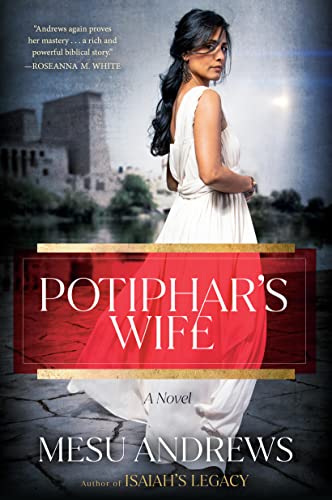Potiphar’s Wife (The Egyptian Chronicles)
The tale of Joseph and Potiphar’s wife is a well-known Old Testament story. In the Andrew Lloyd Webber musical Joseph and The Amazing Technicolor Dreamcoat, Potiphar’s unnamed wife is described as “beautiful but evil.” Andrews’ book dives headlong into the life of a villainized, strong-willed woman confined by cultural and social expectations.
Circa 1700 BCE, after tragedy destroys her home, Zuleika decides to barter herself to Pharaoh for Egypt’s aid. She has ruled in her father’s stead during his seafaring absences and believes her skills could benefit her people and Egypt’s. While promised the sought-after help, she is instead given to Pharaoh’s captain of the guard. The day after Zuleika marries Captain Potiphar, he’s sent away to combat border skirmishes. Zuleika’s efforts to introduce her culture to the royal women ends in disaster and starts rumors about her sanity. Kindness is given by few, including Potiphar’s mother, Joseph, and the Hebrew maid Ahira, who tries to teach Zuleika about Elohim. Instead, Zuleika relies on a childhood friend whose own abuse at the hands of slavers causes him to manipulate and betray her in both mind and body.
Writing with multiple points of view, Andrews reimagines the second intermediary period of Egypt with strong detail and characterization. Little phrases like “a warning shofar” (versus “bell”) help emphasize her period knowledge. Zuleika isn’t always a likeable character, but neither are the circumstances binding her. While Ahira tries to teach Zuleika to trust, emerging hardships put their faith to the ultimate test. Political and personal tensions will keep readers engaged. The book is a powerful examination of a woman abandoned and rejected by society and family, stifled in her creativity and intelligence, who simply wants to be seen but is remembered otherwise. Zuleika’s choices will challenge readers in the very themes of the novel: forgiveness, understanding, and redemption. Would you find her worthy?










